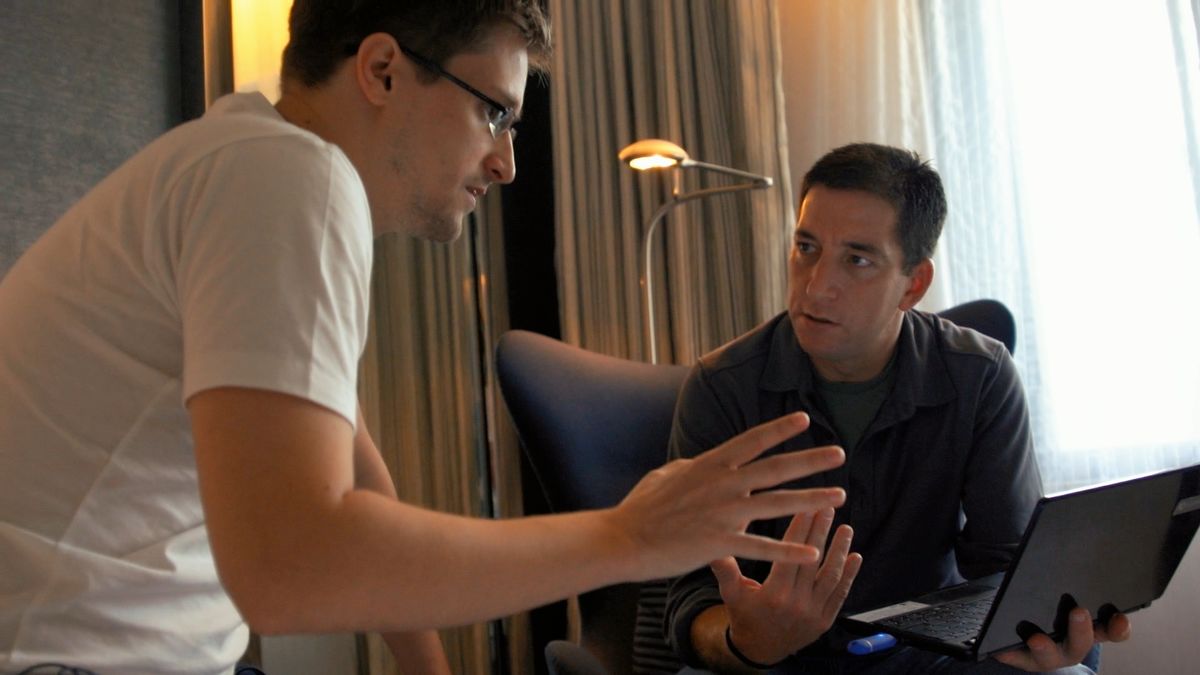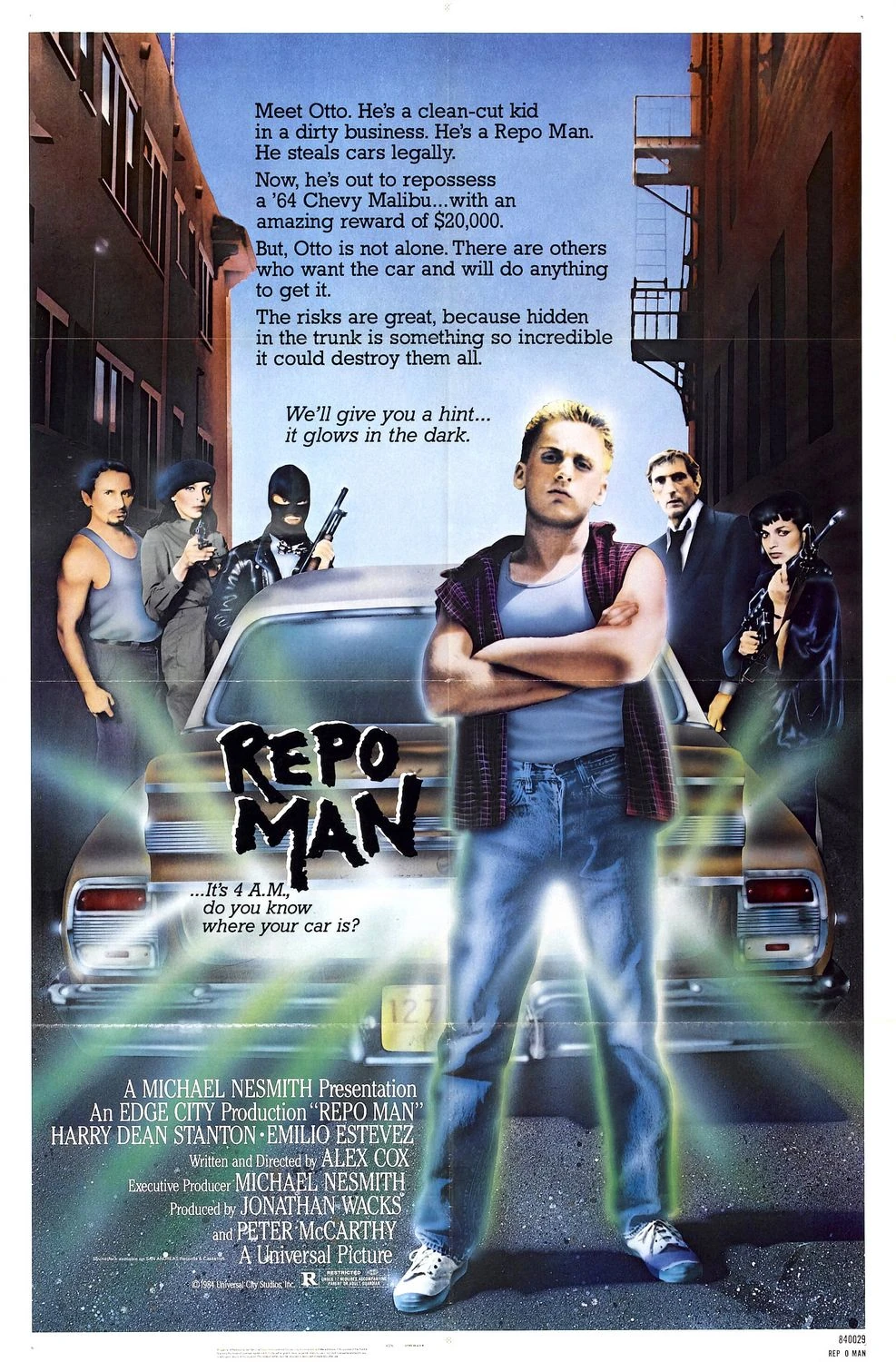This is the 600th movie that I've now seen out of the 1,187 movies on the "Before You Die" list that I'm gradually working my way through.
Director: Laura Poitras
Before watching this, I had only a passing knowledge of the entire Edward Snowden affair. I knew he was a whistleblower on the National Security Agency (NSA), that he had revealed just how deeply into citizens' information trails the NSA had been digging, and that he has since been on the run from extradition.
This movie offers an incredibly and possibly unprecedented first-hand, real-time look at a person blowing the whistle on a massive system which he feels is unethical. Imagine if we had actual footage of Woodward interviewing Deepthroat? Or live film of the first time Jeffrey Wigand talked with people from 60 minutes about his inside knowledge of the Phillip Morris tobacco company? Well that's what we get with Citizenfour, in a hotel room where Snowden was holed up and beginning to share his top-secret knowledge to documentarian Laura Poitras and journalist Glenn Greewald, among a few others. This aspect of the movie alone makes it rather gripping, given how personal privacy and security are still, and will continue to be, highly relevent topics.
I must say, however, that director Poitras could have done a better job helping out some of us lay-people a bit more. The film gives some rudimentary information about Snowden, his job, and the other people involved, but it doesn't offer enough. I understand that many of the great documentaries simply let their human subjects speak for themselves, with little to no interference from the filmmakers. However, this should not be the case when the subject matter is a bit more arcane or technical. Such is the case with this film, which covers topics of cryptography, technology of the highest order, and much of the jargon that goes along with such heady topics. We viewers are offered very little in the way of explanations or definitions of some of the slang which Snowden and even the reporting journalists know and understand. On top of that, we get email exchanges between Snowden and Poitras, some of which are relatively clear and engaging, but others of which are difficult ot decipher. I seem to recall that one of the criticisms of this movie when it was released was a sense of self-importance on the part of the filmmakers, and I can see what those critics meant. It can occassionally seem as if Poitras assumes that viewers should already be aware of and familiar with her plight and the issues of privacy and security which Snowden is dealing with. The result is that some aspects of the movie can be vague and frustrating.
Still, it is easy to see the struggle that Snowden is going through. He is still and will probably always be a controversial figure. However, when one watches this movie, one cannot doubt that he knew full well what he was giving up by sharing his secrets with the world. His entire life was turned upside down. He knew it would happen, but his ethics compelled him to action. Seeing this unfold with such grand consequences is a very rare thing, and it is one that is worth watching for everyone.
That's 600 movies down. Only 587 more to go before I can die.
Director: Laura Poitras
Before watching this, I had only a passing knowledge of the entire Edward Snowden affair. I knew he was a whistleblower on the National Security Agency (NSA), that he had revealed just how deeply into citizens' information trails the NSA had been digging, and that he has since been on the run from extradition.
This movie offers an incredibly and possibly unprecedented first-hand, real-time look at a person blowing the whistle on a massive system which he feels is unethical. Imagine if we had actual footage of Woodward interviewing Deepthroat? Or live film of the first time Jeffrey Wigand talked with people from 60 minutes about his inside knowledge of the Phillip Morris tobacco company? Well that's what we get with Citizenfour, in a hotel room where Snowden was holed up and beginning to share his top-secret knowledge to documentarian Laura Poitras and journalist Glenn Greewald, among a few others. This aspect of the movie alone makes it rather gripping, given how personal privacy and security are still, and will continue to be, highly relevent topics.
I must say, however, that director Poitras could have done a better job helping out some of us lay-people a bit more. The film gives some rudimentary information about Snowden, his job, and the other people involved, but it doesn't offer enough. I understand that many of the great documentaries simply let their human subjects speak for themselves, with little to no interference from the filmmakers. However, this should not be the case when the subject matter is a bit more arcane or technical. Such is the case with this film, which covers topics of cryptography, technology of the highest order, and much of the jargon that goes along with such heady topics. We viewers are offered very little in the way of explanations or definitions of some of the slang which Snowden and even the reporting journalists know and understand. On top of that, we get email exchanges between Snowden and Poitras, some of which are relatively clear and engaging, but others of which are difficult ot decipher. I seem to recall that one of the criticisms of this movie when it was released was a sense of self-importance on the part of the filmmakers, and I can see what those critics meant. It can occassionally seem as if Poitras assumes that viewers should already be aware of and familiar with her plight and the issues of privacy and security which Snowden is dealing with. The result is that some aspects of the movie can be vague and frustrating.
Still, it is easy to see the struggle that Snowden is going through. He is still and will probably always be a controversial figure. However, when one watches this movie, one cannot doubt that he knew full well what he was giving up by sharing his secrets with the world. His entire life was turned upside down. He knew it would happen, but his ethics compelled him to action. Seeing this unfold with such grand consequences is a very rare thing, and it is one that is worth watching for everyone.
That's 600 movies down. Only 587 more to go before I can die.







